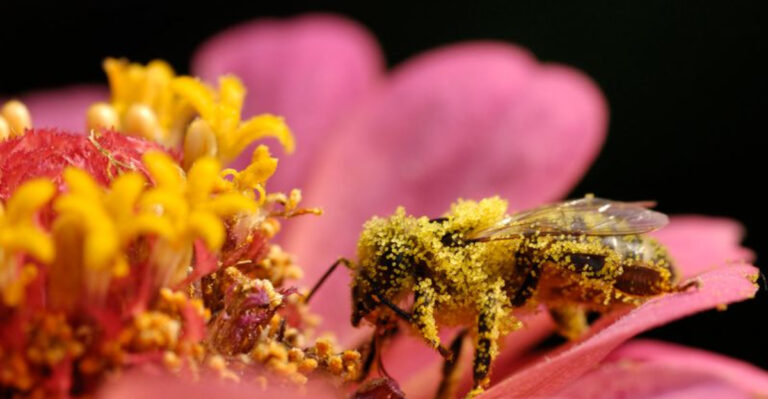15 Common Myths About Pet Birds
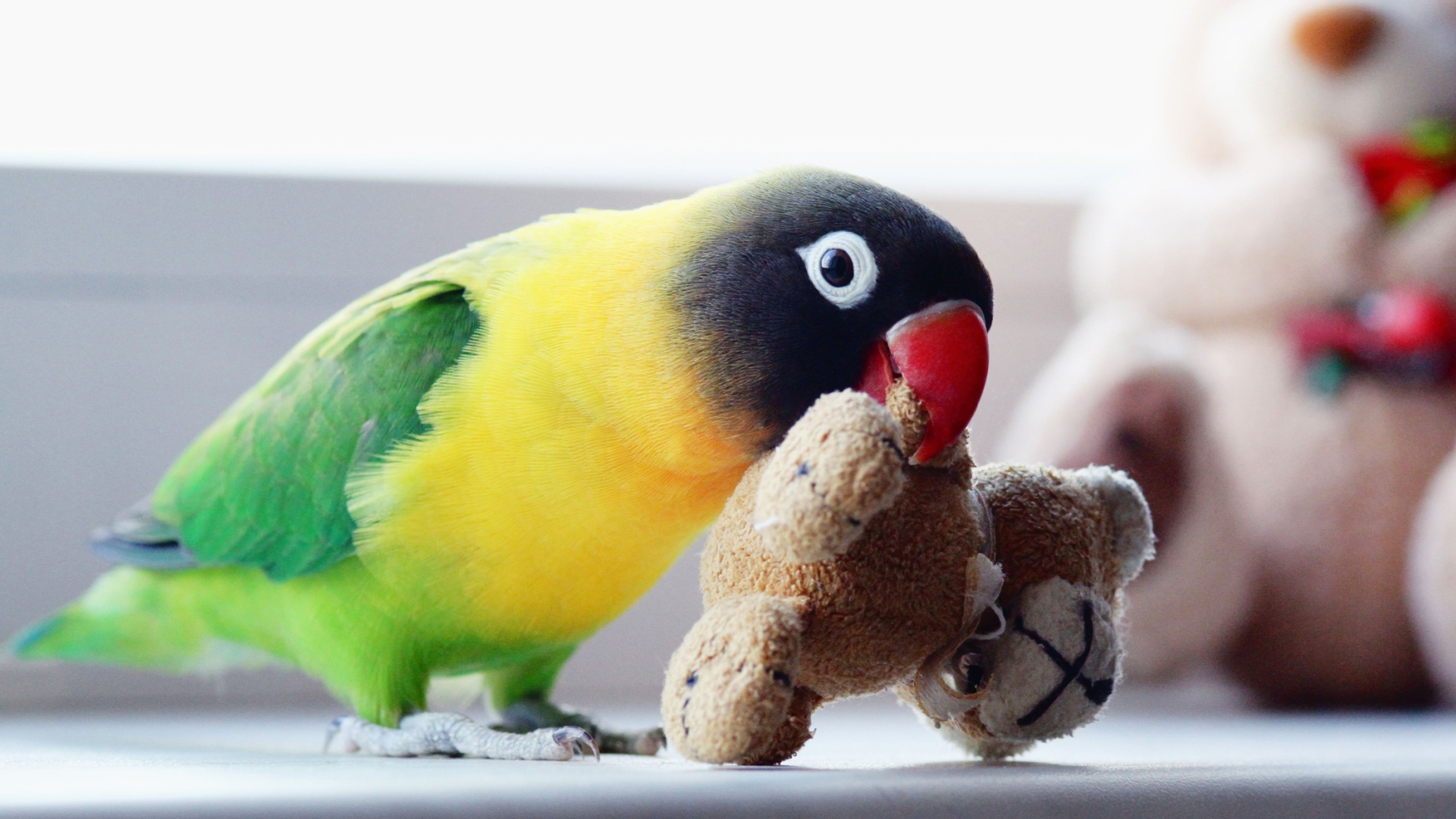
Pet birds, those charming avian companions, have long captivated human hearts with their vibrant colors and delightful melodies. Yet, like any subject of fascination, they’re not exempt from misunderstandings and myths.
From their dietary needs to their social behaviors, misconceptions abound in the world of pet birds. Whether you’re a seasoned bird owner or contemplating bringing one into your home, understanding these myths can help you create a more harmonious relationship with your winged companion.
So, let’s spread our wings and uncover the truth behind these avian myths!
1. Birds Need Cage-Free Homes
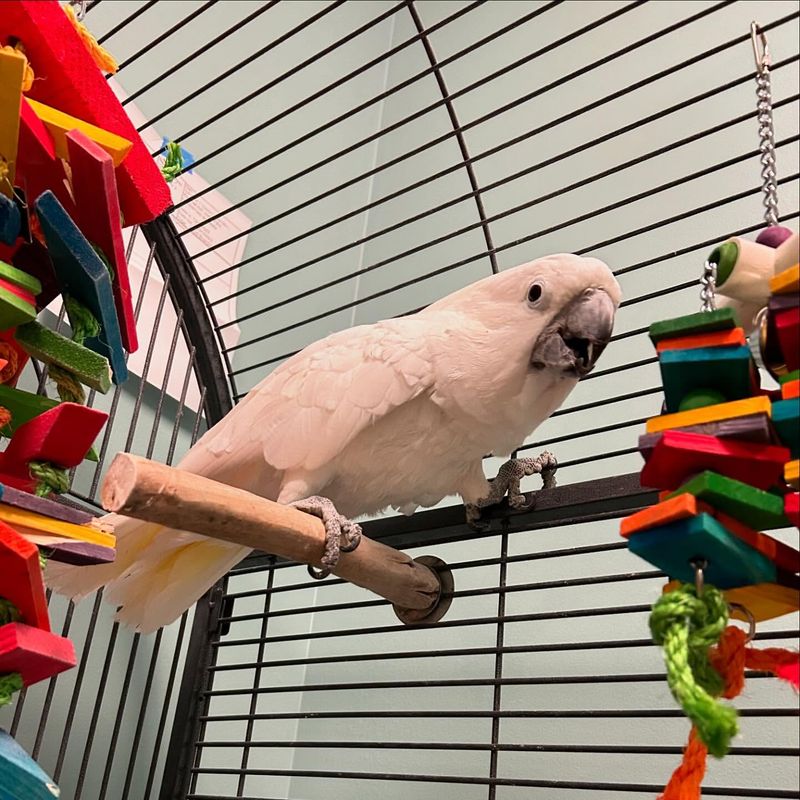
One might think that setting a bird free within the home is the ultimate form of kindness. However, this belief might just be for the birds. Pet birds actually thrive in structured environments where they can feel safe and secure. A spacious cage filled with toys, perches, and opportunities for mental stimulation will keep a bird happy and healthy. While out-of-cage time is essential, a designated space of their own is equally important.
Birds are naturally curious creatures, and without a controlled environment, they may encounter hazards like electrical cords or toxic plants. Allowing a bird to roam entirely free might be a recipe for disaster. A cage provides a safe haven, much like a bedroom is to a child, offering a retreat from the hustle and bustle of daily life. A bird’s cage should never feel like a prison but rather a sanctuary where they can express their natural behaviors.
With proper care, a bird’s cage becomes a place of joy and comfort, not confinement. By dispelling the myth of cage-free living, pet owners can ensure their feathered friends enjoy a balanced and fulfilling life.
2. Birds Only Mimic Speech
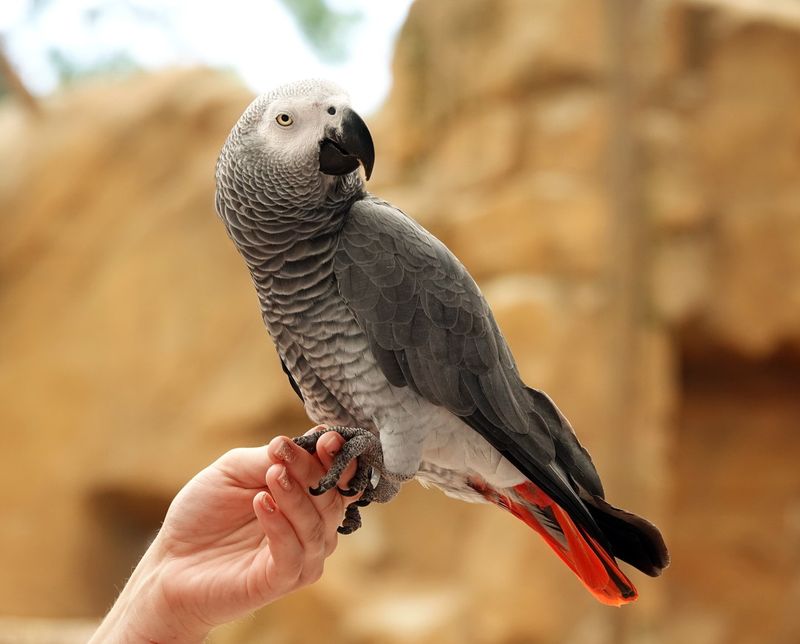
If you think parrots are just feathered voice recorders, think again! While their mimicry is impressive, these birds possess intelligence that rivals many mammals. Parrots can solve complex problems, understand simple concepts, and even show emotions. They’re not merely repeating words but are engaging with their environment in meaningful ways.
For example, the African Grey parrot is known for its cognitive abilities, including understanding shapes, colors, and numbers. They can associate words with their meanings and even use language contextually. This myth underestimates the rich mental life of these avian companions.
Providing enrichment through toys and puzzles can stimulate a bird’s mind, encouraging them to explore their surroundings. By recognizing their intelligence, bird owners can foster a more engaging and interactive relationship with their pets.
Birds are more than just mimics; they’re complex beings with unique personalities, capable of forming deep bonds with humans. Embracing this truth can lead to a more rewarding companionship.
3. Birds Thrive On Seeds Alone
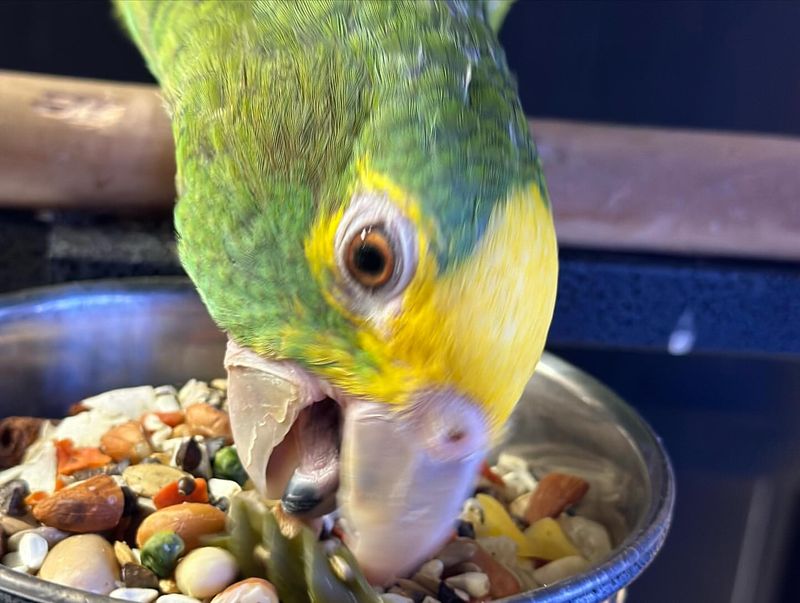
Seeds, seeds, seeds – a staple in the bird world, right? Well, not quite. Many people mistakenly believe that a diet consisting solely of seeds is ideal for pet birds. In reality, a seed-only diet can lead to nutritional deficiencies and health problems. Birds require a varied diet, including fruits, vegetables, and pellets, to meet their nutritional needs.
Seeds are often high in fat and lack essential vitamins and minerals. A balanced diet should include items like leafy greens, carrots, apples, and specially formulated bird pellets. These provide the necessary nutrients that seeds alone can’t offer. Think of seeds as the potato chips of the bird world – tasty but not a complete meal.
Introducing a variety of foods can also stimulate a bird’s interest and prevent boredom. By providing a well-rounded diet, bird owners can promote long-term health and happiness for their feathered friends. It’s time to move beyond the seed bowl and embrace a culinary adventure with your pet bird. After all, variety is the spice of life!
4. Birds Are Low-Maintenance Pets
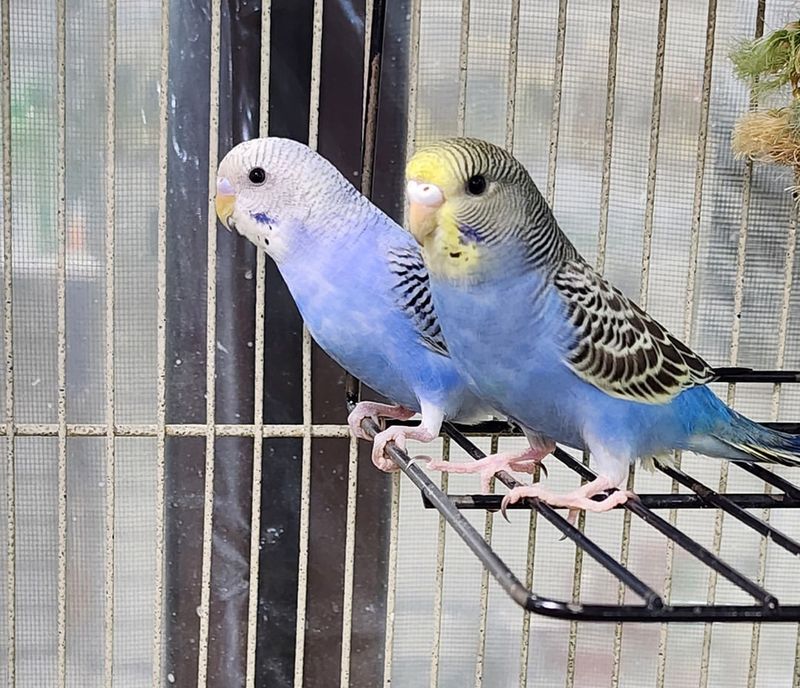
Some may think that having a bird is a simple, hands-off experience, but that’s far from the truth. Birds, like all pets, require dedicated care and attention. From daily feeding and cleaning to interaction and mental stimulation, owning a bird involves a significant time commitment.
Birds are social creatures and need regular interaction with their human companions. Without proper engagement, they can become lonely, leading to behavioral issues such as feather plucking or excessive screeching. Cleaning their living space regularly is also essential to maintain a healthy environment.
For those seeking a low-maintenance pet, a bird may not be the best choice. However, for those willing to invest the time and effort, the rewards are immense. Birds offer companionship, joy, and endless entertainment. By understanding the level of care required, potential bird owners can make informed decisions and ensure a fulfilling relationship with their avian friends.
5. Birds Can’t Be Trained
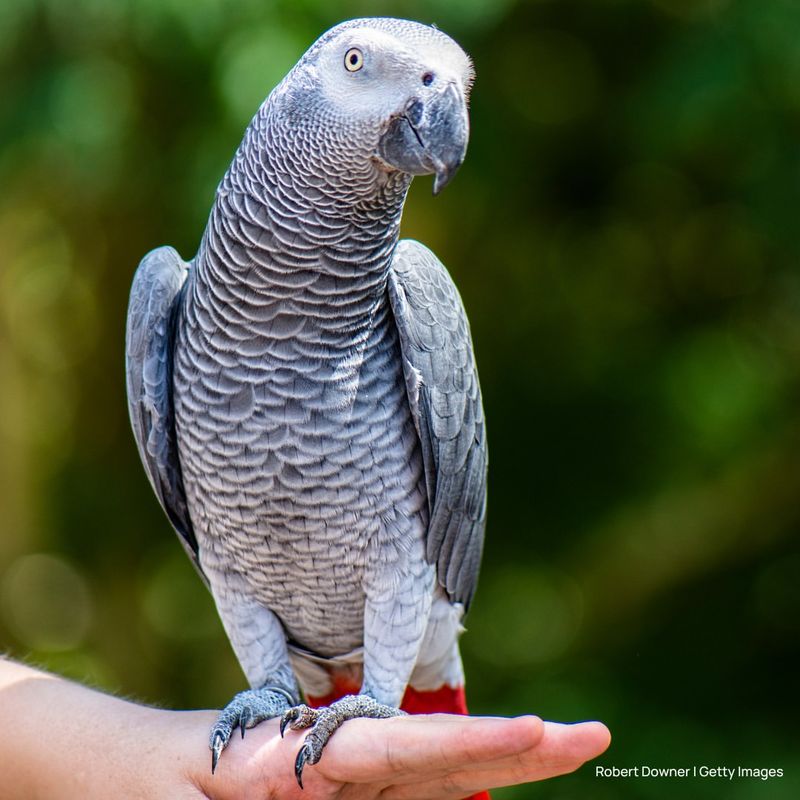
Think birds are untrainable? That’s a myth you can toss out faster than a bird’s molt! Birds, especially parrots, are highly trainable and can learn a wide array of tricks and behaviors. Training not only enriches their lives but also strengthens the bond between bird and owner.
Training sessions should be fun and rewarding for the bird. Using positive reinforcement techniques, such as treats and praise, helps birds understand what is expected of them. Whether it’s teaching a parrot to fetch, wave, or even perform a little dance, the possibilities are endless.
Birds enjoy the mental stimulation that training provides, and it keeps them engaged and happy. Training also offers practical benefits, such as teaching a bird to step up onto a hand or return to its cage on command. By embracing the training potential of birds, owners can unlock a world of fun and interaction with their feathered companions. Who knew training could be such a hoot?
6. Birds Can’t Live With Other Pets
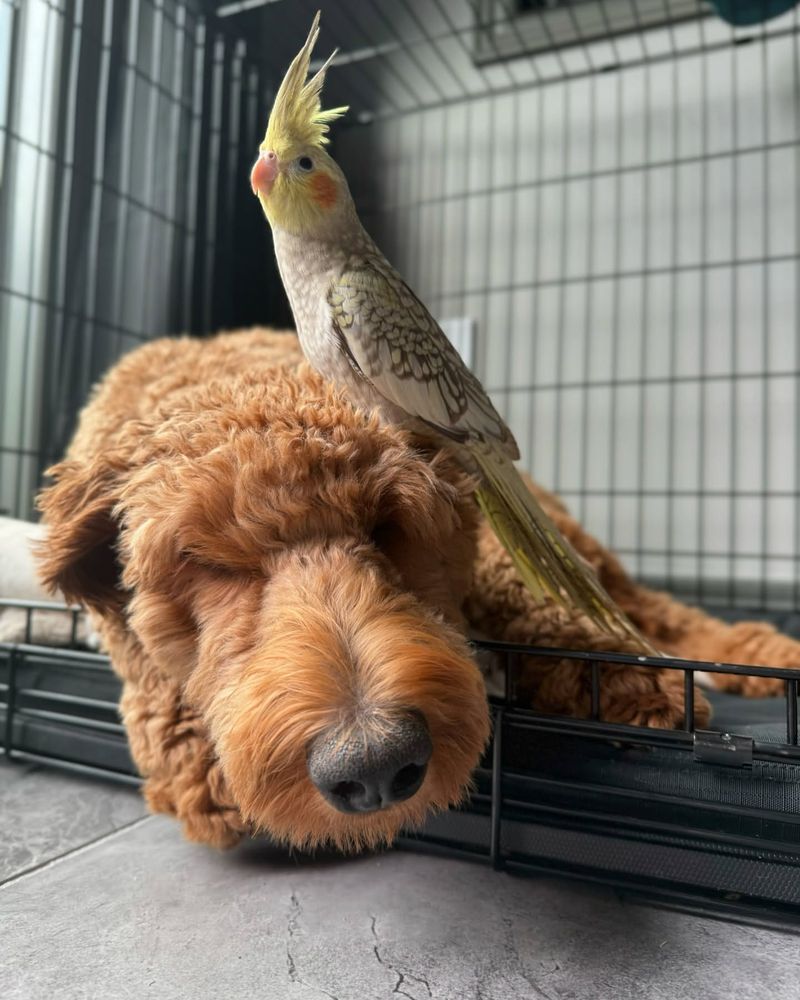
The idea that birds and other pets can’t coexist is a myth that needs to be clipped. While certain precautions are necessary, birds can live harmoniously with other pets, such as cats and dogs, in the right environment. The key is understanding the dynamics and ensuring everyone’s safety.
Introducing birds to other pets requires careful supervision and gradual acclimation. Each animal has its own personality, and some may be more inclined to get along than others. Providing separate spaces and respect for each pet’s boundaries is essential.
With patience and proper management, birds can be part of a multi-pet household. It’s important to never leave birds unattended with other animals, but with the right approach, they can become part of a happy, blended family. By dispelling this myth, pet owners can explore new possibilities and build a diverse and enriching environment for all their furry and feathered friends.
7. Birds Don’t Require Veterinary Care
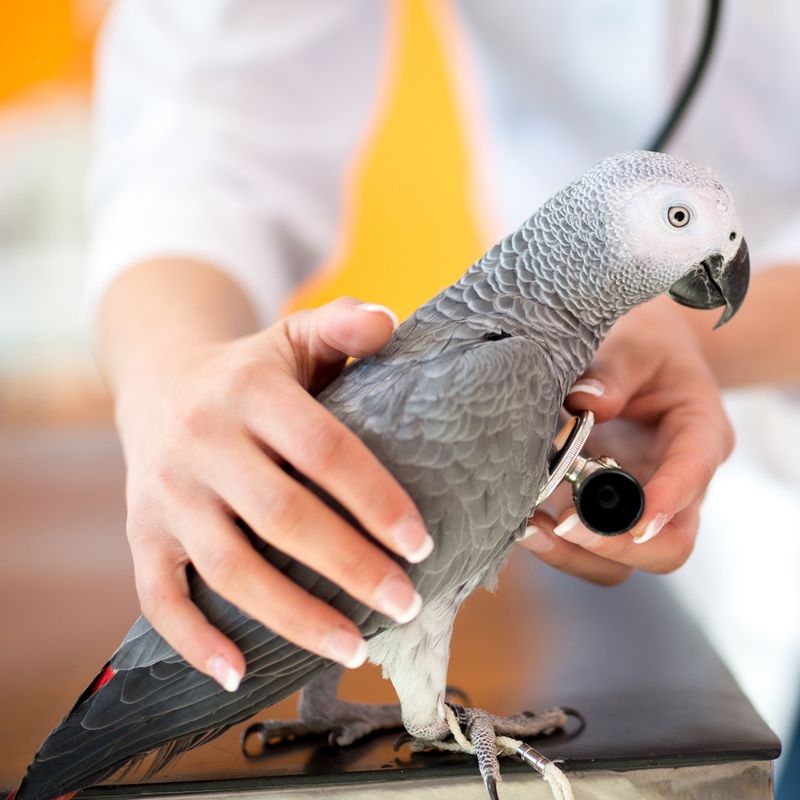
Think birds can skip the vet? That’s flying in the face of common sense. Just like cats and dogs, birds need regular veterinary care to ensure their health and well-being. Avian veterinarians specialize in the unique needs of birds and can provide essential services such as health checkups, vaccinations, and dietary advice.
Regular vet visits can help catch potential health issues before they become serious problems. Birds often hide signs of illness, so a professional’s eye is crucial in maintaining their health. Whether it’s a routine check or addressing specific concerns, veterinary care is an integral part of responsible bird ownership.
Ignoring a bird’s medical needs can lead to severe health complications. By acknowledging this myth and prioritizing veterinary visits, bird owners can contribute to a longer, healthier life for their feathered companions. After all, a healthy bird is a happy bird, and that’s something worth tweeting about!
8. Birds Are Noisy And Annoying
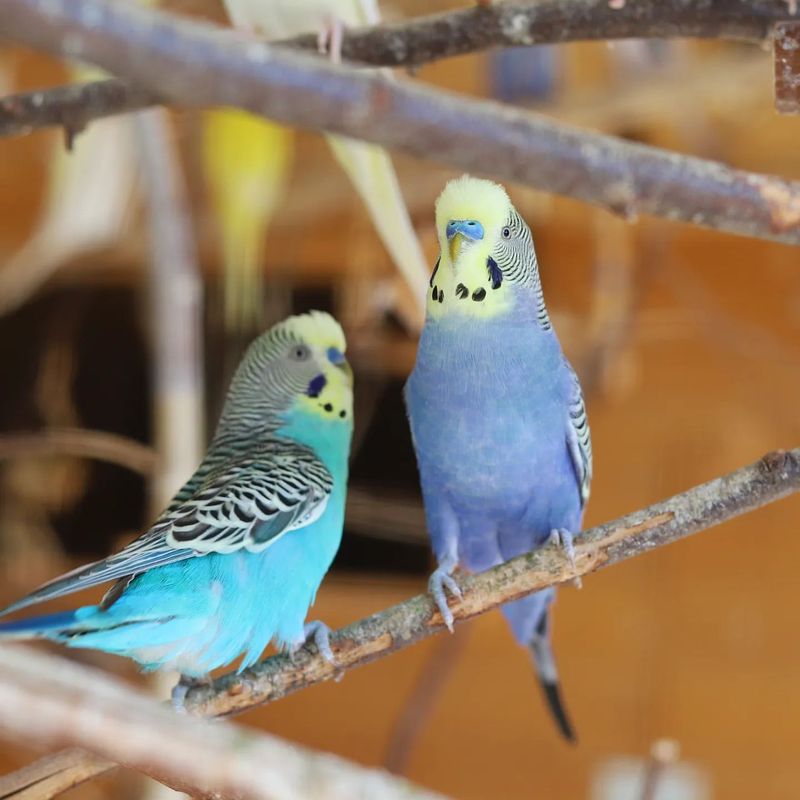
Are birds just feathered noise machines? That’s a myth that doesn’t hold water. While birds can be vocal, they are not inherently noisy or annoying. In fact, their sounds are a form of communication, expressing needs, emotions, and even joy.
Different bird species have varying vocalizations, and some are naturally quieter than others. Understanding your bird’s communication style can help manage noise levels. Providing mental stimulation and a comfortable environment can also reduce excessive noise, as boredom often leads to louder behavior.
For those who appreciate the melodious songs of their feathered friends, bird sounds can be a delightful part of the home ambiance. By recognizing the reasons behind their vocalizations, owners can enjoy a harmonious coexistence with their avian companions. So, instead of squawking about the noise, embrace the beautiful symphony that a happy, contented bird brings to the home.
9. Birds Will Bond With Everyone Equally
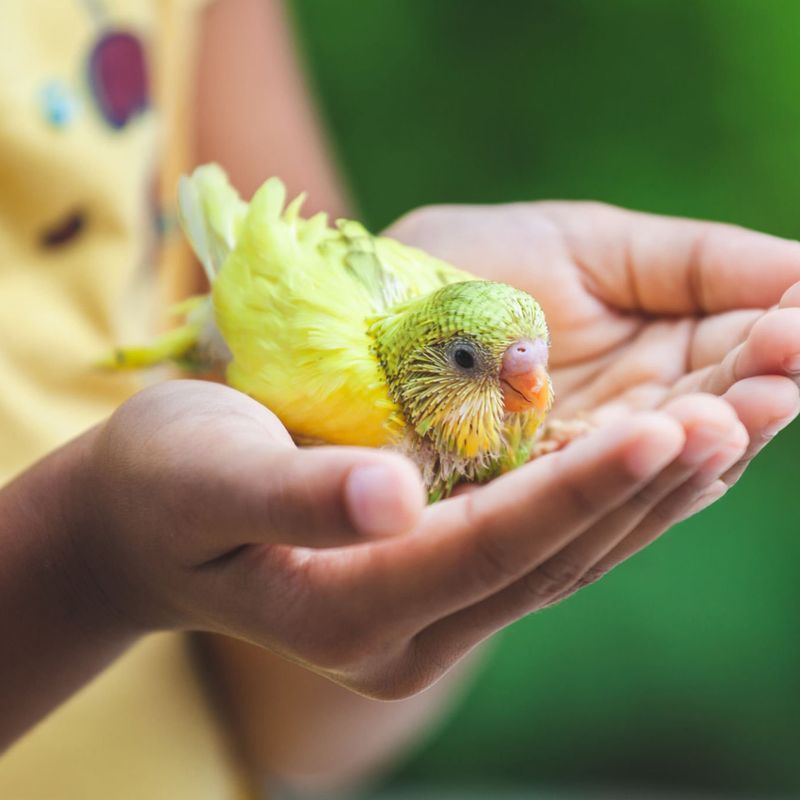
Birds are equal opportunity bonders, right? Not quite! Contrary to popular belief, birds often form strong attachments to specific individuals rather than spreading their affections equally. This myth can lead to misunderstandings about a bird’s social preferences and behaviors.
Much like humans, birds have individual personalities and may gravitate towards someone they feel most comfortable with. Factors like handling, voice, and even scent can influence a bird’s choice of their favorite human. It’s not uncommon for a bird to show preference, cuddling and interacting more with one person.
Understanding this bonding behavior can help manage expectations and foster healthy relationships within a household. Encouraging positive interactions with multiple family members can help a bird feel secure and loved by all. Just remember, winning a bird’s heart takes time and patience, but the rewards are well worth the effort. After all, it’s not just love at first sight; it’s love at first squawk!
10. Birds Will Automatically Be Tame
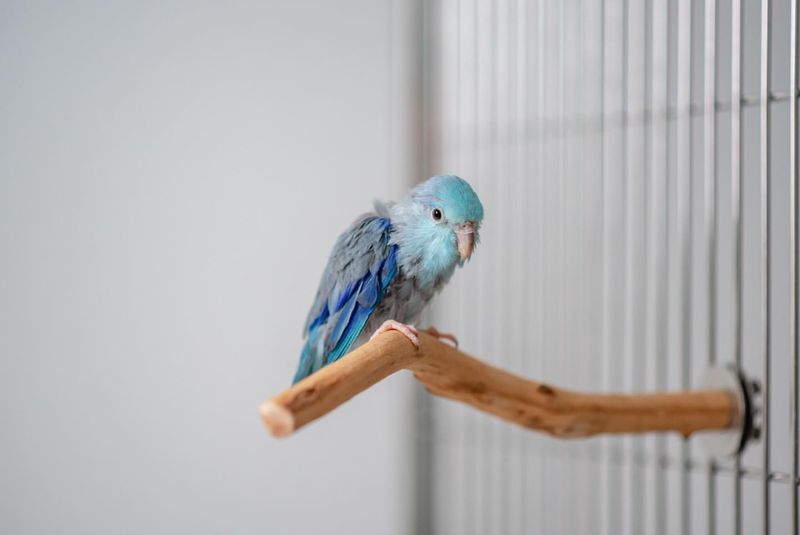
Thinking a bird will be instantly tame is like expecting a cat to fetch your slippers. Taming a bird requires patience, consistency, and understanding. New bird owners often believe that a bird will automatically be friendly and social, but this is far from reality.
Building trust with a bird takes time, especially if they’re new to the environment or have had negative experiences in the past. Using gentle and positive reinforcement techniques, like offering treats and speaking softly, can help your bird feel more comfortable.
Every bird is unique, and some may take longer to adjust than others. Owners should respect their bird’s pace and not rush the taming process. By acknowledging this myth, bird enthusiasts can foster a more trusting and enjoyable relationship with their feathered friends. With patience, understanding, and a sprinkle of love, a bird can become a true companion for life.
11. Birds Can Be Left Alone For Long Periods
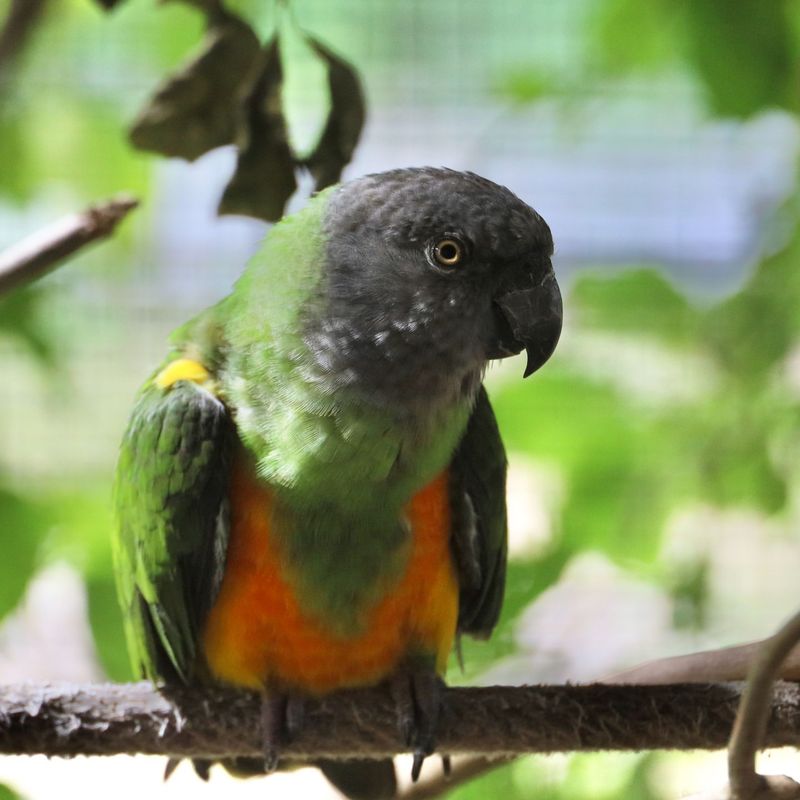
Think birds are just fine flying solo for days? That’s a myth that’s truly for the birds. Birds are social creatures, and leaving them alone for extended periods can lead to loneliness and behavioral issues, including feather plucking and excessive noise.
While birds may not require constant attention, regular social interaction is crucial for their well-being. Whether it’s through conversation, playtime, or simply being in the same room, human interaction helps birds feel secure and content. Without it, they may become stressed and unhappy.
For bird owners with busy schedules, understanding this myth is essential. Arranging for someone to check in or providing stimulating toys can help keep a bird entertained during absences. By recognizing the social needs of birds, owners can ensure their feathered companions remain happy and healthy, even when life gets a little hectic. Who knew that a little face time could mean so much to a bird?
12. Birds Can’t Feel Emotions
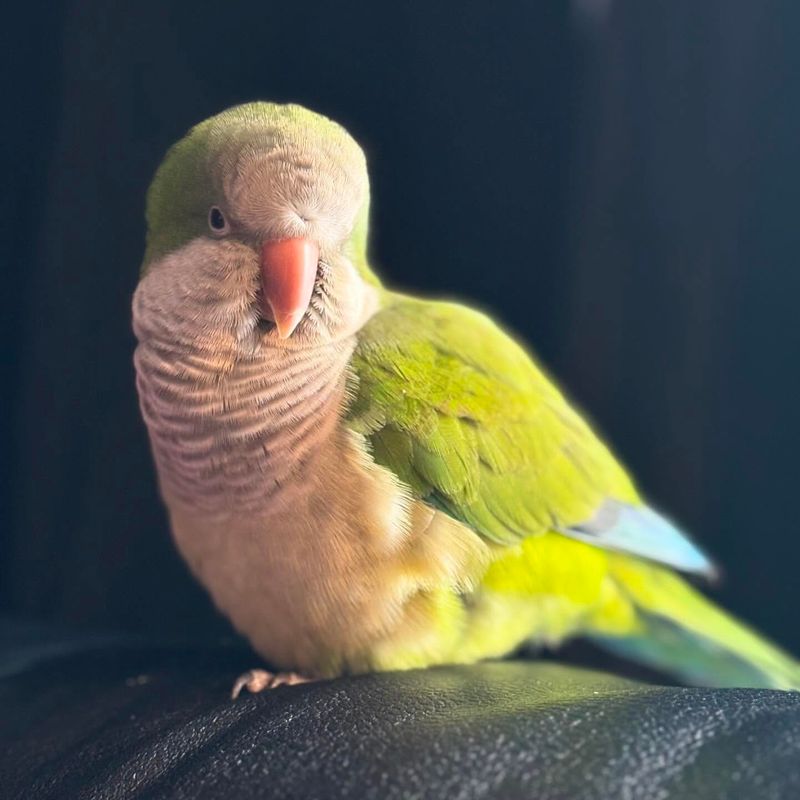
If you think birds are emotionless, you’ve got yourself a turkey of a myth! Birds, like many animals, are capable of feeling and expressing emotions. They can show happiness, affection, fear, and even jealousy, forming deep emotional bonds with their human companions.
Observing a bird’s body language and vocalizations can provide insights into their emotional state. A contented bird might sing or fluff its feathers, while a frightened one may become silent or retreat. Recognizing these signs allows owners to respond appropriately to their bird’s needs.
Building a strong emotional connection with a bird involves understanding and respecting their feelings. Engaging with them through play, conversation, and shared experiences fosters a sense of trust and affection. By debunking this myth, bird owners can appreciate the rich emotional lives of their feathered friends and create a more fulfilling and harmonious companionship.
13. Birds Don’t Recognize Their Owners
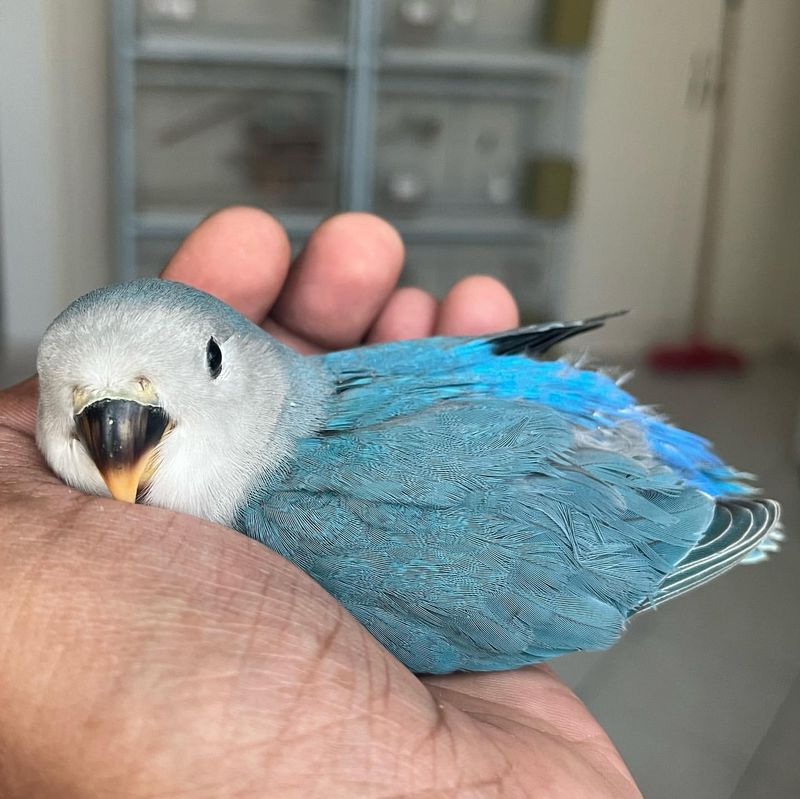
Believe that birds can’t tell you from a stranger? That’s a myth that needs to be clipped. Birds have excellent recognition abilities and can distinguish their owners from other people. This recognition forms the foundation of a strong, trusting relationship.
Birds use visual and auditory cues to identify their human companions. The way you speak, your scent, and your appearance all contribute to their recognition. They may respond more readily to you, displaying excitement or affection when you enter a room.
This myth underestimates a bird’s cognitive abilities and the depth of their relationships with humans. By understanding and appreciating this aspect of bird behavior, owners can foster a stronger bond with their avian friends. Recognizing that birds know and care for their human companions adds a layer of joy and satisfaction to the pet ownership experience. It’s not just about feeding crackers; it’s about building a friendship.
14. Birds Don’t Need Toys Or Enrichment
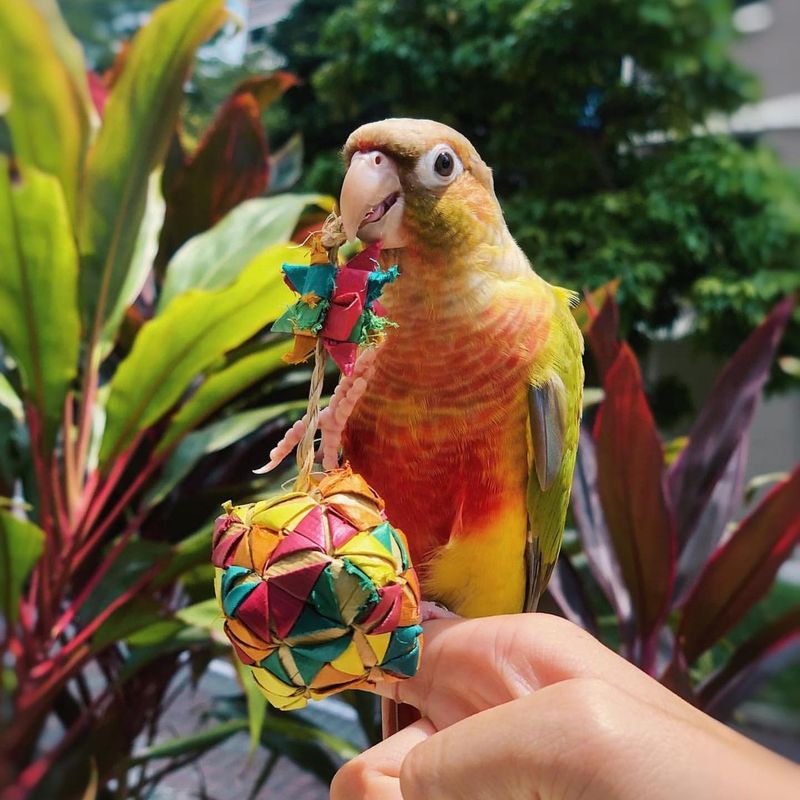
Toys for birds? Surely that’s just parrot-phrasing, right? Not at all! Birds thrive on mental stimulation, and toys play a crucial role in their enrichment. The myth that birds don’t need toys overlooks the importance of keeping their minds active and engaged.
Providing a variety of toys helps prevent boredom and encourages natural behaviors like foraging, climbing, and exploring. Rotating toys regularly keeps things fresh and exciting for your feathered friend. Interactive toys, puzzles, and foraging devices can challenge a bird’s intellect and provide hours of entertainment.
Ignoring a bird’s need for enrichment can lead to behavioral issues and diminished quality of life. By embracing the role of toys, bird owners can create a more dynamic and enjoyable environment for their pets. After all, a happy bird is one that’s mentally engaged, and who doesn’t love a little playtime?
15. Birds Are Just Decorative Pets
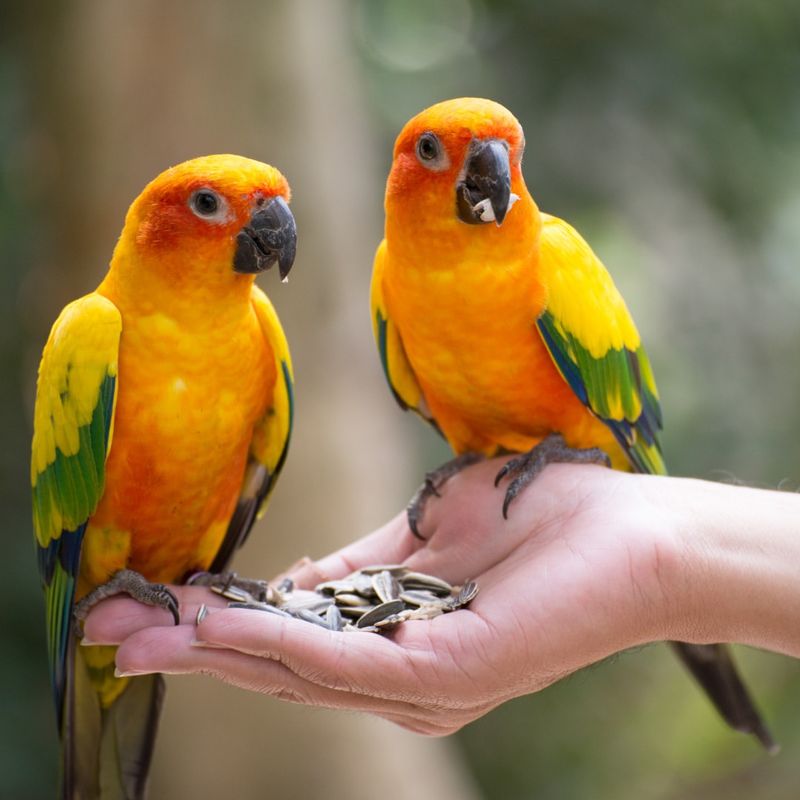
Think birds are just living decorations? That’s a myth that needs to fly the coop. Birds are intelligent, social beings with distinct personalities and needs. They’re not merely ornamental but active participants in the household, capable of forming deep bonds with their human families.
Owning a bird involves understanding and meeting their physical, social, and emotional needs. They require interaction, enrichment, and proper care to thrive. Viewing them merely as decorative objects does a disservice to their complexity and reduces the richness of the human-bird relationship.
By recognizing birds as more than just pretty feathers, owners can foster a more meaningful and rewarding connection with their avian companions. Embracing their intelligence, quirks, and companionship transforms the experience of bird ownership, turning it from mere observation into a shared journey. So, let’s celebrate birds for who they are, not just what they look like!






